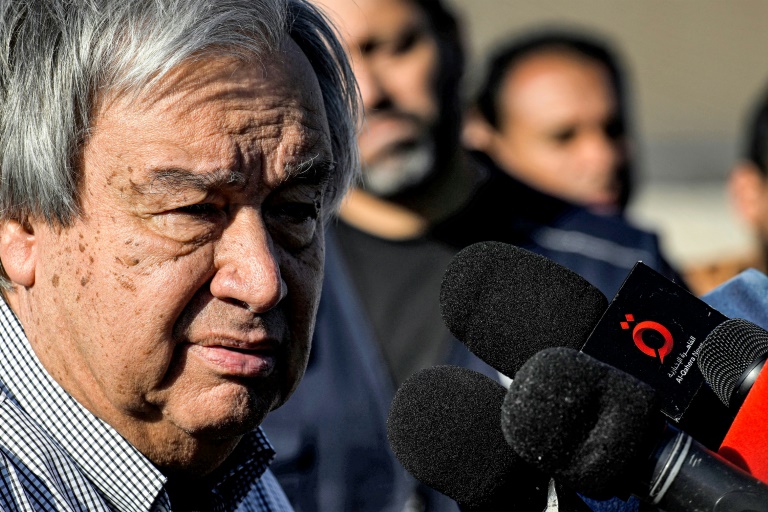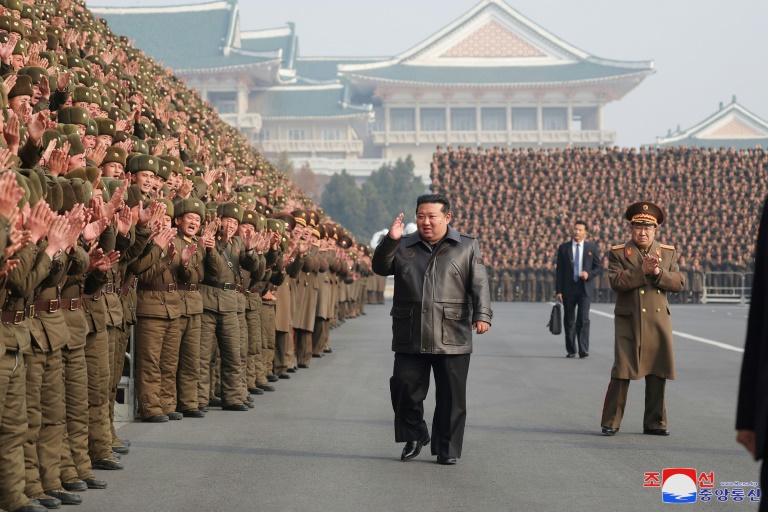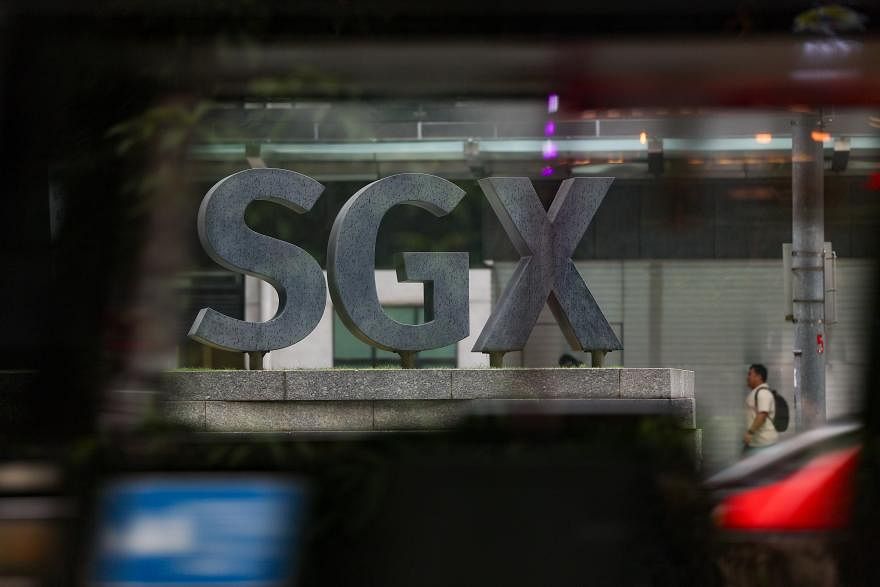Israeli forces fought Hamas militants in besieged Gaza on Monday including around at least two major hospitals, raising fears for the patients, medics and displaced people trapped inside.
Troops and tanks have encircled Gaza City’s Al-Shifa Hospital, the territory’s biggest, for a week and more recently moved on the Al-Amal Hospital in the main southern city of Khan Yunis.
While Israel has labelled its operations “precise” and said it has taken care to avoid harm to civilians, aid agencies have voiced alarm about civilians caught up in the fighting.
As combat raged on, technical talks have continued in Qatar towards a truce and hostage release deal, and the UN Security Council was set to convene later in the day for a vote on a new ceasefire demand.
Almost six months into the war sparked by the October 7 attack, global concern has mounted over the threat of famine in Gaza, and on Israeli plans to invade the crowded far-southern city of Rafah.
UN chief Antonio Guterres, on a crisis visit to the Middle East, has pleaded for an end to the “non-stop nightmare” for the 2.4 million people trapped in Gaza’s worst-ever war.
As Israel’s top ally the United States has also voiced rising concern, the Israeli defence minister, Yoav Gallant, was headed to Washington for talks with Pentagon chief Lloyd Austin.
Gallant said his focus in the United States — which provides Israel with billions of dollars in military aid a year — would include “our ability to obtain platforms and munitions”.
Israel’s Prime Minister Benjamin Netanyahu, who leads a coalition including ultra-nationalist parties, has vowed to go ahead with a Rafah invasion even without Washington’s support.
US Vice President Kamala Harris stressed on ABC TV that a Rafah invasion would be “a huge mistake” and, when asked whether she would rule out “consequences” for Israel, replied that “I am ruling out nothing”.
The Gaza war broke out after Hamas’s unprecedented attack of October 7 which resulted in about 1,160 deaths in Israel, mostly civilians, according to an AFP tally based on official Israeli figures.
Israel has vowed to destroy the militants, who also seized about 250 hostages, of whom Israel believes around 130 remain in Gaza, including 33 presumed dead.
The health ministry in the Hamas-run Gaza Strip on Sunday put the total Palestinian death toll at 32,333, most of them women and children.
Bombardment and fighting in Gaza killed another 72 people overnight, according to the ministry.
More than 50 airstrikes rained down on the Gaza Strip, said the Hamas government press office.
Israel’s armed forces gave a similar number and said its fighter jets and helicopters had struck about 50 “terror targets” and “eliminated approximately 10 terrorists”.
Food and water shortages have deepened the suffering, especially in northern Gaza where residents, mostly women and children, were waiting in line to fill up jerrycans and buckets in Jabalia.
“We don’t even have food to give us the energy to go to collect the water — let alone the innocent children, women and the elderly,” said one man, Bassam Mohammed al-Haou.
Another local man, Falah Saed, said “we are suffering a lot from water shortages because all and pipes and pumps have stopped working since the beginning of the war”.
Israel’s army said it was battling militants around two hospitals and reported some 20 enemy fighters killed in the past day in close-quarters combat and air strikes.
Israel labelled the raids “precise operational activities”.
Palestinians living near Al-Shifa have reported hellish conditions, including corpses in the streets, constant bombardment and the rounding up of men, who are stripped to their underwear and questioned.
The Al-Shifa raid was in its eighth day and the military reported detaining some “500 terrorists affiliated with the Hamas and Islamic Jihad terrorist organisations” and locating weapons in the area.
Israel has said the operation will continue until the last militant is “in their hands”, signalling an extended presence at Al-Shifa, which troops also raided in November.
At Al-Amal Hospital, the Palestinian Red Crescent said Israeli forces had surrounded all entrances and prohibited hospital staff from leaving.
The military said its Al-Amal operation included “raids on several terrorist infrastructure sites in the area and located explosive devices, RPGs (rocket-propelled grenades) and military equipment”.
The Red Crescent on Sunday said military vehicles had also surrounded the nearby Nasser hospital, but the situation there remained unclear.
Later in the day in New York, the UN Security Council was to vote on a new draft resolution calling for an “immediate” ceasefire in Gaza and the release of hostages.
Russia and China had vetoed an earlier text proposed by the United States, but Beijing said Monday it would back the latest version.
Permanent Council member the United States has unequivocally supported Israel’s right to defend itself but recently tempered its support for Israel over its conduct of the war.
The new text, according to the version seen by AFP on Sunday, “demands an immediate ceasefire” during the ongoing Muslim holy month of Ramadan, “leading to a permanent sustainable ceasefire”.
It also “demands the immediate and unconditional release of all hostages” as well as the “lifting of all barriers to the provision of humanitarian assistance at scale”.
The text is being put forward by non-permanent members of the Security Council, who have worked with Washington to avoid a veto, according to diplomats speaking to AFP on condition of anonymity.
One diplomat told AFP that “we expect, barring a last-minute twist, that the resolution will be adopted and that the United States will not vote against it”.
AFP
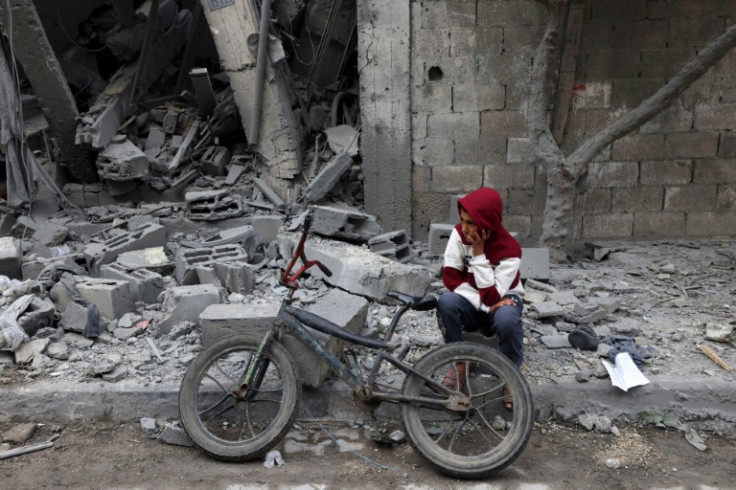
AFP

AFP
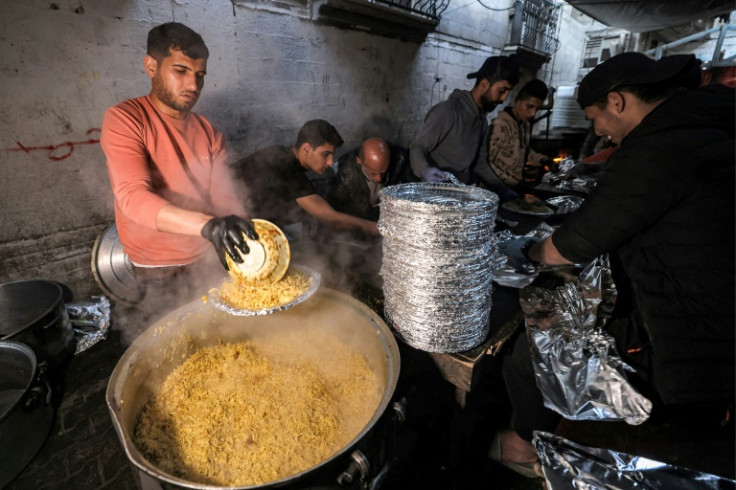
AFP
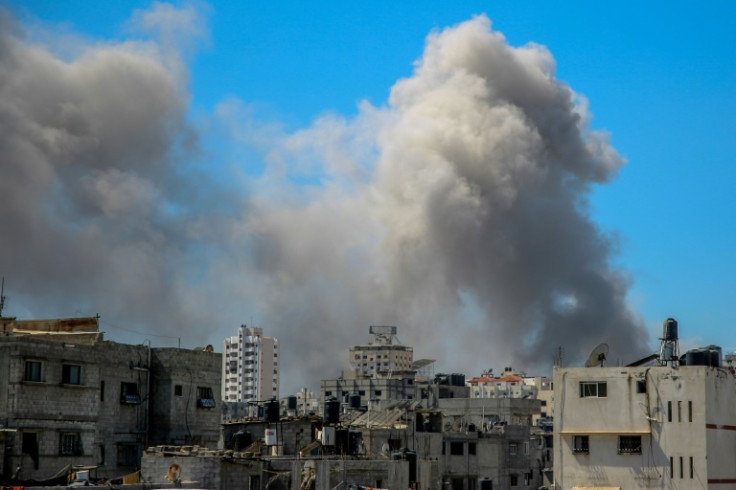
AFP
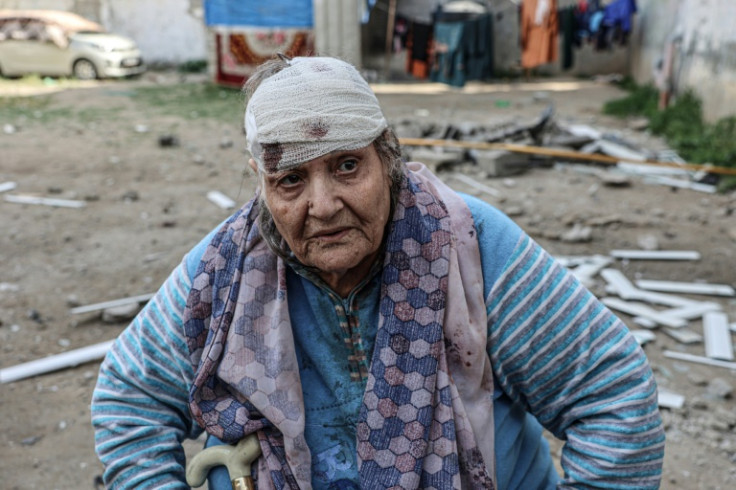
AFP

